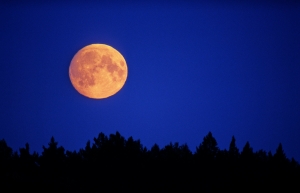 I spent a hot and stormy night in Franklin, North Carolina in 2006. In the sweltering afternoon before the storm, I walked from the center of town, down the hill beside the road busy with traffic, past the auto shop and the Carpet store, across from the Hot Spot gas station. Nestled in this unlikely place was a big, grassy area mound at least twice my height and as big as my living room.
I spent a hot and stormy night in Franklin, North Carolina in 2006. In the sweltering afternoon before the storm, I walked from the center of town, down the hill beside the road busy with traffic, past the auto shop and the Carpet store, across from the Hot Spot gas station. Nestled in this unlikely place was a big, grassy area mound at least twice my height and as big as my living room.
Later that night in the midst of the storm, an unexpected council began to gather seen only by the eyes of my heart. Over the next month, the fullness of the council came to me and spoke. Despite our different “languages” we communicated without difficulty.
The plump full moon spoke first from her far off perch.
“Millions of years ago, something wild and filled with Love pulsed through the vast empty space. At just the right moment all of the elements floating in the abyss were irresistibly pulled together into a giant fireball. The explosion consumed everything and filled all that was. This sacred fire burned for nearly a million years. From this fiery beginning billions and billions of galaxies formed, including ours. On your planet swirled the perfect combination of elements warmed by the sun, and a wild diversity of life was birthed. Stardust is woven into everything, into you and into me. While the primeval soup of the universe churned, this planet and everything on it was pulled together through the attraction of gravity. Throughout it all a voice full of delight cried out, ‘It is GOOD, it is VERY GOOD!”
All is held together by a dance of attraction. This includes my round body, the rocks, the earth and each of your bodies. There is a pull within our atoms, our molecules and your living cells that keeps us all dancing together. In that way, in a way of mystery beyond all telling of it, this entire universe is held together by attraction. You can call it gravity, if you prefer. Call it whatever you want.
In truth, we are held together by Love.
All of us, from rocks, to trees, to me, to you humans, we have all that we need. We are and we live, and that is enough. You humans, set in the middle of this ever-creating cosmos, have something additional. You were given the ability to witness and reflect on the beauty and mystery and glory of creation. That is a great gift, but not an easy one. It would be impossible for you to carry the responsibility of witnessing the beauty and shouldering the crucial stewardship alone. But you were never meant to do it alone. The Love at the center of it all guides the way. The rest of creation is ready to help.
If you humans will only ask and listen.”
Moon is quiet for a moment. We all know that humans have so rarely asked or listened, especially in the last few hundred years. All around us creation groans in sighs too deep for words.
Soon Moon continues, “This sky that looks bright under the sun’s rays by day and dark with twinkles by night is the powerful Mother of all. The Mother cosmos exploded in birth when touched with the Loving divine. Earth, and all of you in this council gathered around the fire, are filled with all that is needed for abundant life. It is an exquisite gift to all sisters and brothers of creation.
Don’t forget. We are all one family, part of a vast universe held together with Love.”
I shiver in amazement at the breadth and wildness of my cosmic home. I have spent most of my life trying to shrink the universe into something small and manageable. I had pictured the world like a small globe, the universe something I could hold in my hand.
It was easier that way.
It was also a lie.
… It is now January 2014. In these times when it feels like so much is crashing around us, it is good for me to remember the deeper truth–we are all held together by Love.
This writing is excerpted from “A Circle of Wisdom” that flowed from an experience near my family’s ancestral land in North Carolina and the depths of my imagination. I’ll share parts of the wisdom I “heard”—from water, rocks, plants and animals—in this blog series.








